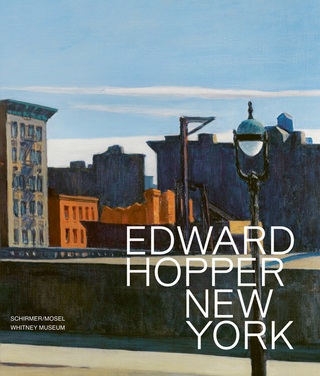
Conspiracy Ideologies in Films and Series
Springer Fachmedien Wiesbaden GmbH (Verlag)
978-3-658-43693-3 (ISBN)
Corona as a staged instrument of oppression, secretly kept vaccination deaths or politicians drinking children's blood: at the latest since the outbreak of the Covid 19 pandemic, conspiracy ideologies are booming and harm social peace and democratic will formation through their dogmatism. So-called conspiracy theories generate systematic distrust of legitimate political institutions and can contribute to social polarization, dangerous populism and extremist escalation. Conspiracy ideologies have always been a topic in movies and television series, as they have always dealt with the relationship between reality and illusion, truth and fiction, reality and dream, sense and madness through their cinematic means. Series and films not only serve as a discursive space for social self-understanding, but also, through their complex narratives, constellations of characters and aesthetics, offer catchy explanations for the emergence and spread of conspiracy narratives. At the same time, theymake suggestions, some of them astonishingly concrete, for dealing with such collective delusions. What can we learn from the fictional worlds of series and films for dealing with this very real contemporary phenomenon?
Denis Newiak (Dr. des.) is a freelance film and television scholar and researches aesthetics and narratives of loneliness in current television series as well as their community-building functions. He teaches media, film and television theory as well as communication and organizational management.
Anastasia Schnitzer (M. Sc.) is a graduate assistant at the Department of Communication Studies and Media Research DCM at the University of Fribourg (Switzerland). She is doing her PhD on the impact of complex narratives and mediatized contacts on stigmas and stereotypes of people with mental disorders. Her further research interests include the quality of mediatized contacts, empathy and persuasion in health communication.
On the introduction to an expendable research subject.- Conspiracy in the spy film.- Media form and political effect. Veit Harlan's Jud Süß as melodrama.- National Socialist conspiracy narratives: Veit Harlan's feature film Jud Süß.- The motif of whistleblowing and its functionalization in Vaxxed - From Cover-Up to Catastrophe- The loneliness of the conspiracy believer in pandemic seriesusing the examples of Sløborn and Y - The Last Man.- Dark Times in Winden: être-au-monde in the illogic of late capitalism.- The Ides of March.On conspiracies and counter-conspiracies in histotainment.- "In the web of conspiracy myths" - An exemplary analysis of three documentaries on the subject of conspiracy myths as a learning medium in school.
| Erscheinungsdatum | 21.07.2024 |
|---|---|
| Zusatzinfo | XXIII, 139 p. 17 illus., 10 illus. in color. |
| Verlagsort | Wiesbaden |
| Sprache | englisch |
| Maße | 148 x 210 mm |
| Themenwelt | Kunst / Musik / Theater |
| Schlagworte | Aesthetics and forms of staging conspiracy worlds • Conspiracy fanatics in pandemic movies • Conspiracy Ideologies from the Perspective of Media Studies • Conspiracy myths in film and television • Conspiracy narratives in film and television • Corona crisis |
| ISBN-10 | 3-658-43693-X / 365843693X |
| ISBN-13 | 978-3-658-43693-3 / 9783658436933 |
| Zustand | Neuware |
| Informationen gemäß Produktsicherheitsverordnung (GPSR) | |
| Haben Sie eine Frage zum Produkt? |
aus dem Bereich


